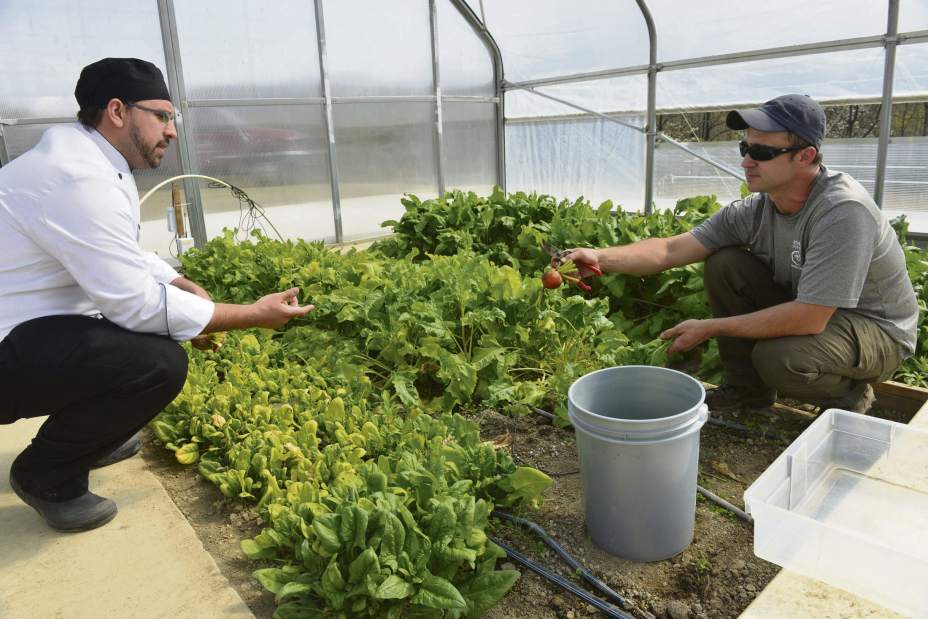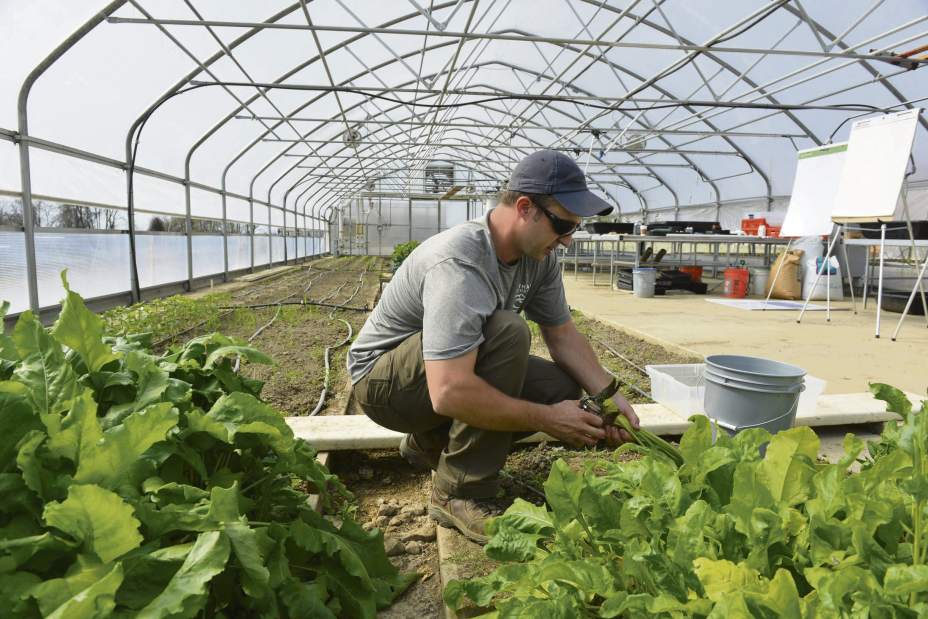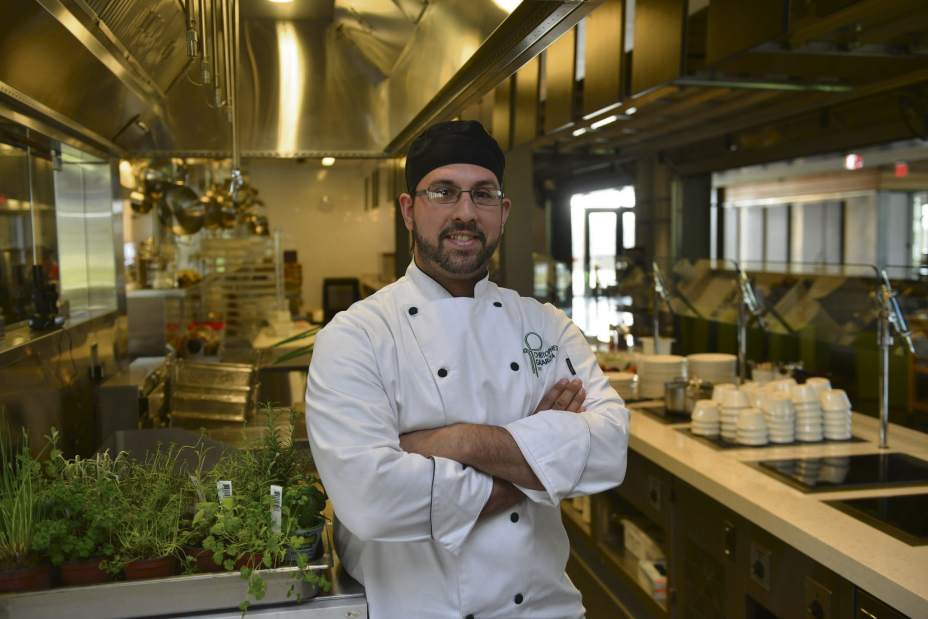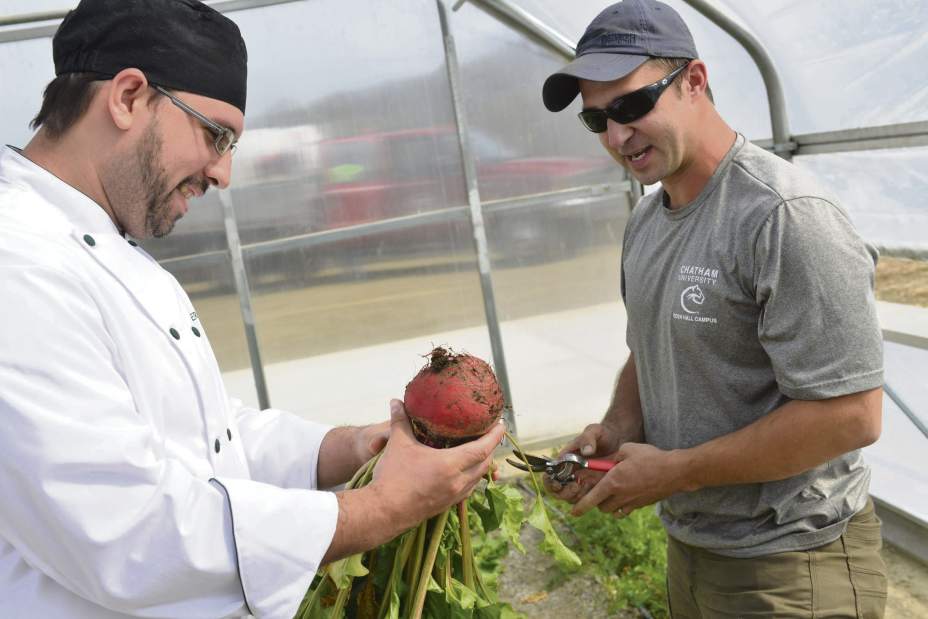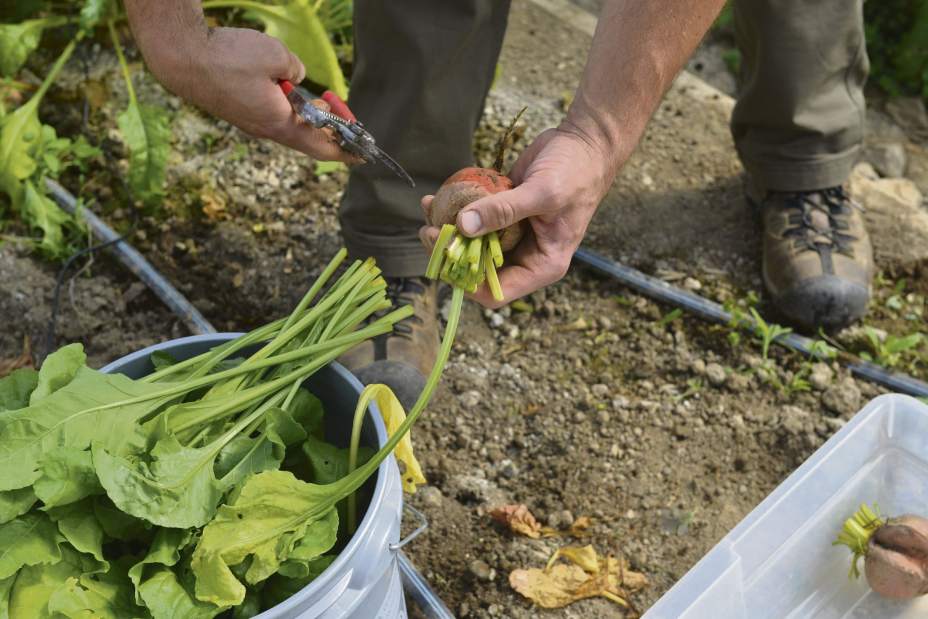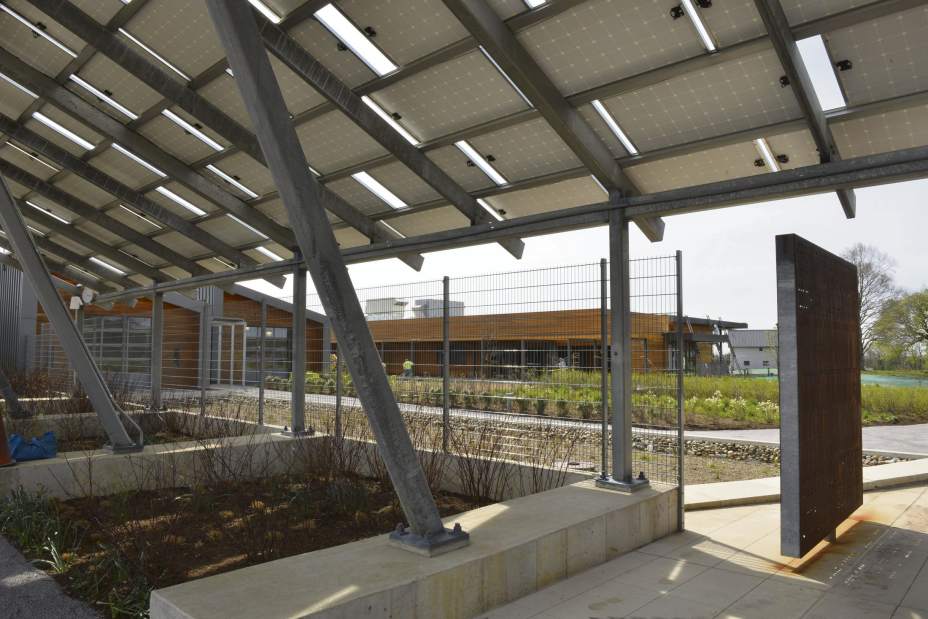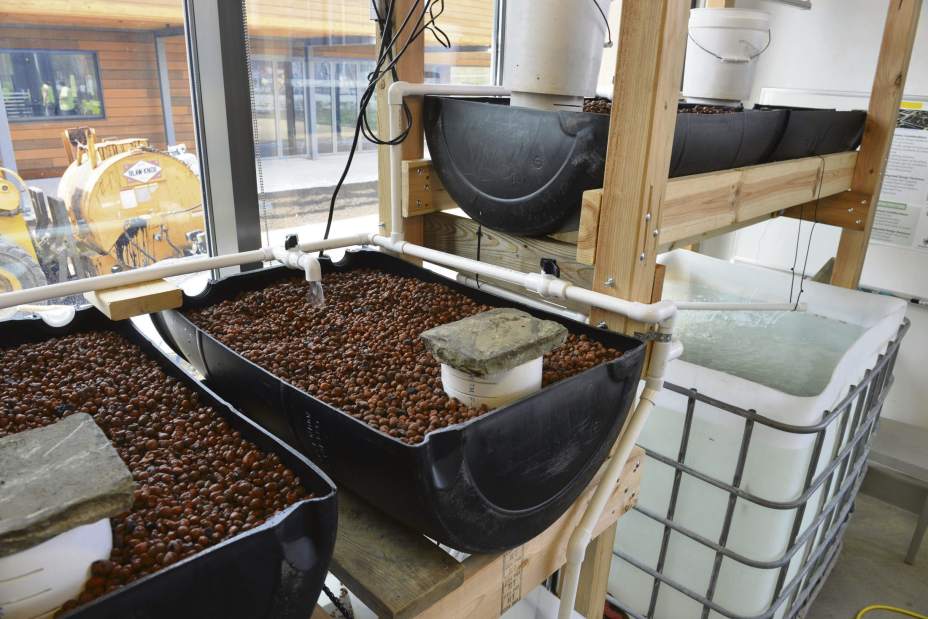Chatham's new sustainable campus boasted as 'first in the world'
Chatham University can boast one of the greenest campuses in America, with completion of a key phase of construction at Eden Hall, its 388-acre farm and woodlands in Richland.
This milestone — representing a $50 million project begun in 2012 — will be celebrated with the dedication of the Eden Hall Commons Center on April 28. The keynote speaker will be Barton Seaver, a chef and conservationist who lives in Maine and is world-renowned for his focus on sustainability and wellness in relation to food.
Seaver was chosen because his message is consistent with the Eden Hall mission of green enterprise, says Peter Walker, dean of Chatham's Falk School of Sustainability.
“He connects having a great meal with understanding the process of how food gets to the plate,” Walker says.
The center is a multipurpose hub on what the university is characterizing as a “first in the world” sustainable campus that includes a working farm, environmentally friendly dorms and classrooms, and an earthen amphitheater with living, plant-based walls. At 22,000 square feet, the two-story center was designed to exceed LEED Platinum standards.
“We've put into place energy systems that enable our campus to generate as much energy as we use,” Walker says.
“We're more than a campus. We're demonstrating a sustainable community where people work and have fun.”
Solar panels generate all of the campus's electricity, and installation of a geo-thermal loop captures and stores summer heat that otherwise would be wasted.
“Instead of venting the heat into the atmosphere, we transfer it to water in a pipe that goes underground and heats thousands of tons of bedrock beneath the campus,” Walker says. “It's like a great big battery that we can extract heat from in winter.”
About half of the campus recycles its own water, which reduces some of the impact on Allegheny County's overloaded storm-water sewer system, Walker says. “We recycle with a biological system that treats the water on campus and makes it cleaner than when it came in.”
Although state regulations don't allow the recycled water to be used for drinking or bathing, Eden Hall is using it in toilets and for crop irrigation.
Eden Hall serves students majoring in food studies, biology, green chemistry and other disciplines. For them, the campus is a living laboratory that provides hands-on lessons in sustainable economics, farm-to-table food production, and green innovation, says Walker, who envisions partnerships with the area's conservation-minded start-up companies.
Rainbow trout being raised in 600-gallon tanks and crops from the field and greenhouses are helping to stock the center's dining hall, a cafeteria and teaching facility being run by chef-manager Chris Galarza of Parkhurst Dining.
“Our menu is based on the harvest,” says Galarza, who collaborates with the campus farm manager on which vegetables will be grown. “Ten crops will be mass-produced this year, including beets, watermelon radishes for pickling, Japanese eggplant, bok choy, and four types of tomatoes.”
Everything is being cultivated organically and fertilized with waste from the trout.
The greenhouses, including a solar-powered hoop house, allow for the production of vegetables even in winter, says Galarza, who gets honey from the campus apiary, and fruit from peach and apple trees and a berry patch.
Galarza's kitchen combines the latest green technology with old-fashioned amenities like a root cellar that allows for the storage of hardier vegetables, such as potatoes and parsnips.
All of Galarza's appliances, including an induction stove, are solar-powered electric for a carbon-neutral footprint. Induction cooking uses an electromagnetic field to heat cookware, essentially turning the bottom of the pan into the heating element.
“You can boil water in 2 minutes flat,” Galarza says. “It uses 50 percent of the energy a conventional cooktop would use.”
Smart technology enables the range's hood to calibrate itself, and to send heat to the building's geothermal loop, says Galarza, who joined Parkhurst after working at The Greenbrier resort in West Virginia and at Monterey Bay Fish Grotto in Pittsburgh.
“This,” he says, of Eden Hall, “is the coolest job ever.”
Galarza solicits input from students to create the dishes they want to eat.
“I do an Indian Day once a month because one of the students from India was homesick,” he says. “Or a student will say, ‘I like anything sour,' so I'll make something with sauerkraut.”
Food-studies majors can observe Galarza at work via video technology, because the kitchen doubles as a facility designed to engage students in preparing food.
“Last year, we took corn grown on campus, dried it, and used that to make popcorn,” Galarza says.
Dean Walker notes that other collaborative culinary efforts are planned, including development of a ginger-flavored whiskey with Wigle Whiskey in the Strip District, using ginger grown in Eden Hall's solar-powered greenhouse.
Dedication of the Commons Center is the first phase of what Walker calls a work in progress.
“You do a step, you prove it, you do the next step,” he says. “The hardware is in place, so to speak, and now we have to build the software and people. Eventually, we hope to have classes for 2,000 students.”
New developments will include construction of a 30-bed bunk house at the edge of the woods that puts even more energy into the environment than it uses, Walker says.
Support for the center and other projects has come from the Richard King Mellon Foundation, The Heinz Endowments, the Falk Foundation, and other philanthropic entities, as well as Chatham University's endowment and alumni, and state grants.
Deborah Weisberg is a Tribune-Review contributing writer.

